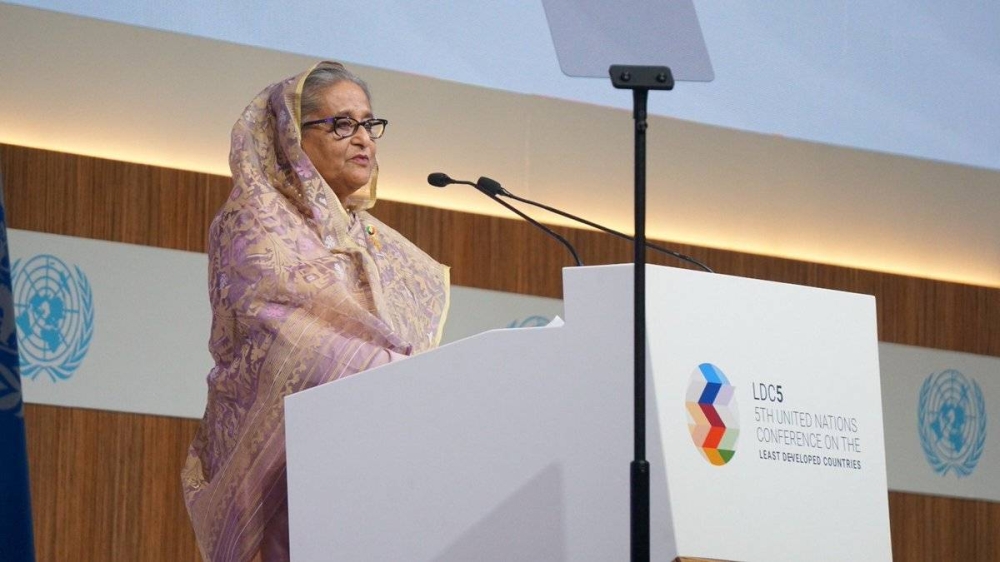Bangladesh Prime Minister Sheikh Hasina Wazed has affirmed that the Doha Programme of Action (2022-2031) is a guarantee of hope for vulnerable countries, and that the international community must renew its commitment to its implementation to achieve structural transformation in the least developed countries.
In her speech to the 5th UN Conference on the Least Developed Countries (LDC5), which kicked off Sunday in Doha, she said that the least developed countries need sustainable support in order to double their share in the volume of world trade, and implement the goals and objectives of this development aid.
They also need international financial institutions to support debt sustainability and these institutions have the ability to do so.
She demanded that the transfer of technology to these countries be tangible and real, and that migrant workers enjoy protection, so that the 226mn young people in these countries cannot be disappointed, stressing the need for climate development to be flexible and predictable.
She pointed out that the Covid-19 pandemic and its repercussions, and then the war in Ukraine, were strong blows to the economies of the least developed countries, which led to a rise in food and fuel prices in global markets and thus waves of inflation in developing countries, compounding the climate crises and conflicts.
Sheikh Hasina called for more investments in the areas of knowledge and building productive capacities, and for the formulation of new and innovative financing mechanisms for the least developed countries, and underlined the keenness of these countries to implement what is required of them, especially since they do not seek charitable work and aid as much as they demand the implementation of promises and international commitments.
She stressed the need for the countries that will exit from the list of least developed countries to have some incentives and to enjoy international support measures, for an extended period of time, noting that her country qualifies to exit from this list in 2026, and that it is the only country from this category classified among the 50 largest economies in the world and that this path is linked to the efforts made to achieve sustainable, just and comprehensive development, reduce poverty rates, reduce the consequences of disasters, risks and climate impact, take effective measures for social protection, gender equality and raise literacy rates.
She reviewed her country's efforts during the coronavirus pandemic in providing large stimulus packages and the ability of the Bangladesh economy to withstand the crisis years and in increasing the per capita income, and emphasised that her country is a reliable partner at the level of global supply chains and one of the fastest growing digital economies.

Bangladesh Prime Minister Sheikh Hasina Wazed
